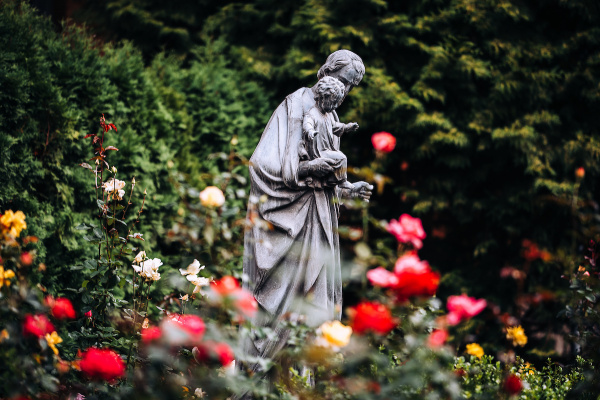“Being a disciple of Jesus is taking up the battle against evil. It is more than avoiding sin. It is helping to create a new world.”
Fr. George M. Smiga, STD (From Give us This Day, March 2022)
I began writing today’s blog on Ash Wednesday, the day in the Christian liturgical calendar that marks the beginning of the reflective and penitential season of Lent. As a family, we’ve been discussing how we want to honor this season. When I was a child, it was the custom to give something up. For me, it was usually chocolate, which was HARD! As an adult, especially after I started participating in Jesuit retreats, my practice developed into adding something to rather than subtracting from my daily routine. Over the last few years, my practice shifted again, with a focus on ways to do justice in the world, including at work.
Let me share a recent key shift in my perspective. In 2016, I was a parishioner at a suburban Detroit Catholic parish. It was near our home and a friendly place. As racist and xenophobic rhetoric in the public sphere increased, I became increasingly uncomfortable with the homilies preached by the pastor. They were not “wrong” but they always focused on personal sin and salvation, personal piety. Not once did he talk about the world around us, our local communities, or the moral imperative of a faith in service of others. I had noticed this pattern before but it created a strong dissonance in my spirit that year that moved me to search for a different worship community. I started attending a Jesuit parish in the city and later became a parishioner there. What a difference! The pastors did not neglect personal holiness but linked it directly to our life in community with others. They talked about our responsibility to see Jesus in others and to live out our faith in concrete ways. Faith and justice were naturally intertwined. As a community, the parish really took to heart St. Ignatius of Loyola’s command to “Go and set the world on fire!”
This Lent, I can’t help but think about what this means for our Catholic, Jesuit, and humanistic educational mission and practice at Gonzaga. We can focus on what we as individuals do in the classroom, or how our disciplines have always been taught. In some ways, this is like that sole focus on personal piety that does not attend to the cries of the poor (in this case, our students or the wider world). Alternatively, we can look around and really investigate (interrogate!) what and how we teach. No matter your religious or spiritual tradition (I recognize that people can be atheists and still spiritual), are you focused only on yourself, or do you enact a belief system that does justice, in service of your students? If we stick to our old way of doing things, we may miss opportunities to connect with students in a new way that may also change us for the better.
To be clear, personal piety is not a bad thing. Striving to be in a deeper relationship with Divine Majesty, however you define it, is healthy. It’s when we neglect the call to service and just or right action, that I think we’ve missed something. That service can look different for different people at different times of their lives. This Lent might be a great time to consider how your faith or belief system can be translated into justice for our students and colleagues.
Office of Mission Integration Lenten Resources: https://morningmail.gonzaga.edu/article/show/100582
Information on what it means to have a faith that does justice in the Catholic and Jesuit tradition:
https://www.usccb.org/offices/justice-peace-human-development/catholic-social-teaching
https://www.ncronline.org/news/opinion/how-be-ignatian-anti-racist-lent

Leave a Reply